|
Saturdee Opry
Links # 135: Grab-bag Edition
Saturdee Opry Links is/are posted for your infinite delight. Quite an array
of items today, including a number of extended excerpts. Also: Fairies! Hindu
deities! Forgotten baritones! Verdi disguised as Debussy! George Bernard Shaw!
Clowns! Duets! Swapped last lines! What? Overture plus ten selections. Salud.
Saturdee Opry Links Overture:
"Nabucco," by Verdi.
Happy 80th Birthday, by the way, to conductor Riccardo Muti.
https://www.youtube.com/watch?v=XHeAB-JbL6k
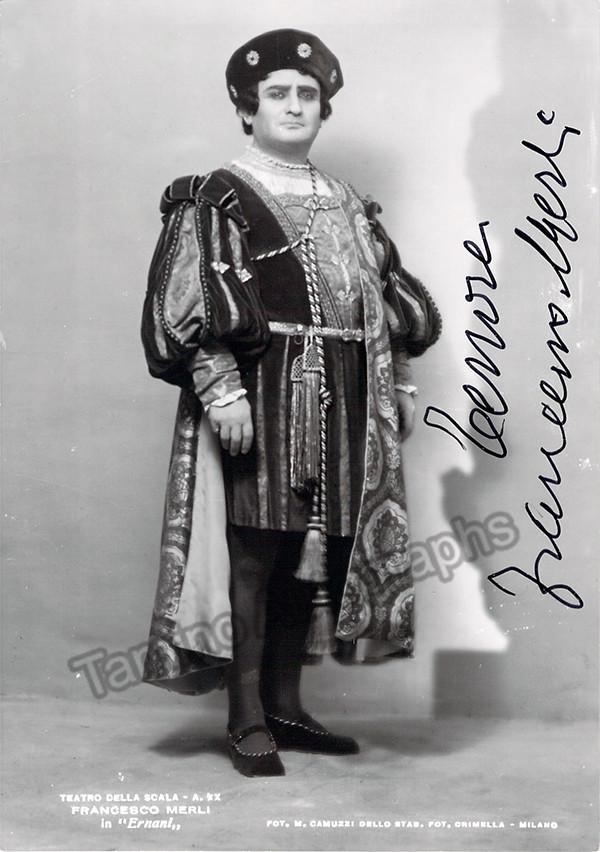
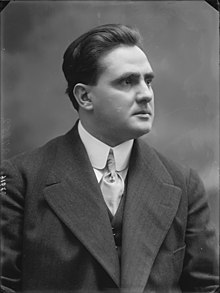

Francesco Merli Riccardo Stracciari Damiana
Mizzi
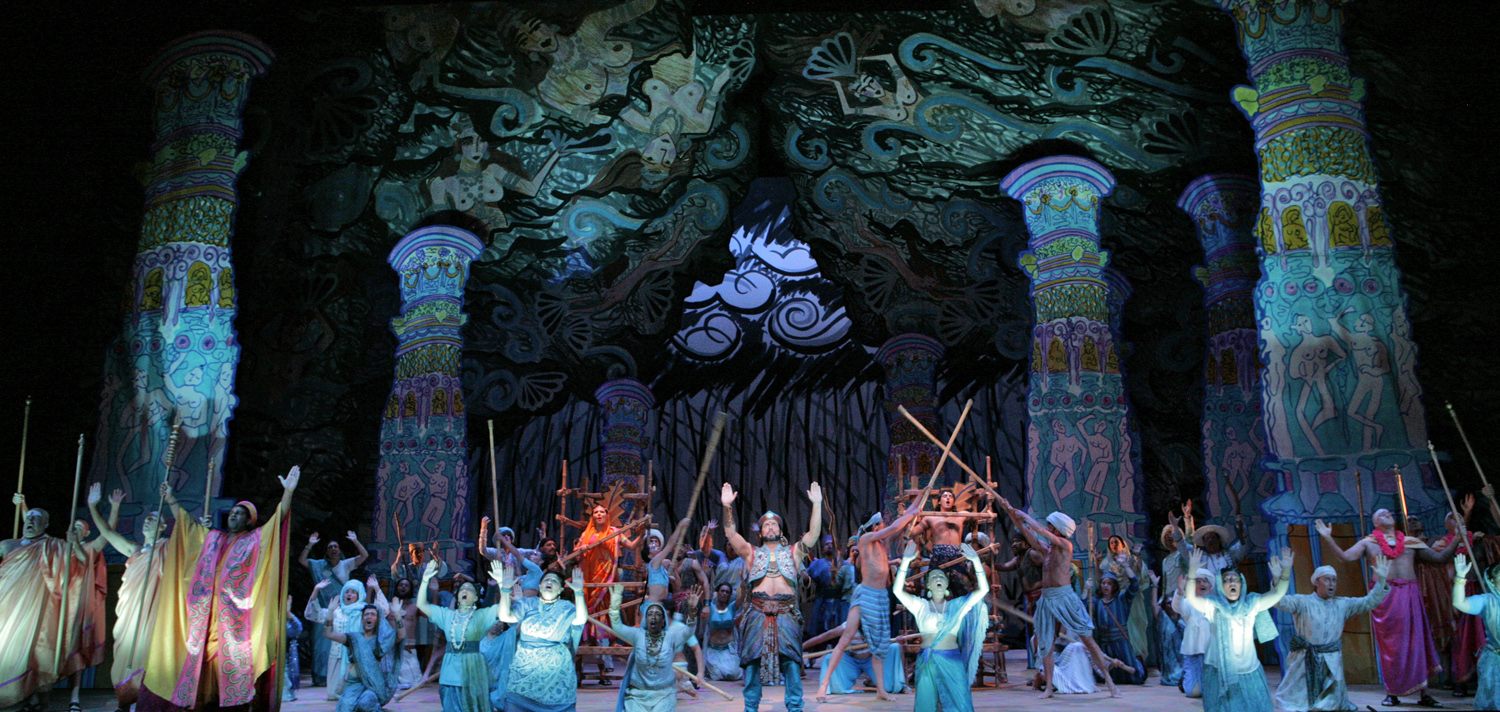
Wonderful scene from Bizet's "The Pearl Fishers." Houston Opera.
1.
The answer to the Jeopardy question that never will be, "Who taught the great
20th century baritone, Boris Christoff," is "Who was Riccardo Stracciari?" Which
is a not very clever way of getting into the fact that Stracciari is less
remembered today because the 20th century was so riddled with terrific
baritones---not because he was not terrific, himself. His story is, like so many
opera singers' stories, rather improbable. His father was a famous local stone
carver and sculptor in and around Bologna, and Riccardo got a degree from the
big local university in. . .engineering! He performed in local theater and opera
productions (chorister), but only for a lark. Fate stepped in---or rather,
Riccardo stepped in---when the lead baritone cancelled in a performance of
Perosi’s oratorio, "The Ressurection of Christ," and the engineering career went
bye-bye. He studied singing instead, and debuted as Marcello in a local
production of Puccini's "La Boheme"---which for several years was the only role
he could sing. Anyhow, it all took off from there, and he went on to a fine
international career. Here he is in a beautiful rendition of the winning aria, "Dio
di Giuda," from Verdi's "Nabucco."
https://www.youtube.com/watch?v=-WGL5DLdT8s
Setting: a room in Nabucco's palace, ancient Babylon
Synopsis: Nabucco has not regained full sanity after he was struck down by a fit
(or Jehovah) in Part II. He believes that his only hope for salvation is to pray
to Jehovah for forgiveness and strength. The prayer does not go unanswered and
Nabucco soon regains his full strength and sanity.
Translation:
https://www.opera-arias.com/verdi/nabucco/dio-di-giuda/
2.
And you thought we were going to follow up with Boris Christoff, eh? Nope. Not
interested in brooding Russian bass arias this morning. You're on your own with
that. Because this is the Grab Bag Edition of SOL, we find ourselves moving
quite capriciously to something at the opposite end of the brooding scale. Which
would be the light, ethereal end, wouldn't it? Question: when is Verdi not
Verdi? Answer: when he imitates Debussy. I'm no opera authority, but when I
first heard this at 3 a.m.---on that PBS classics thing that runs all night---I
couldn't imagine who the composer was. And I thought I knew Verdi's musical
character. Here, from Verdi's final opera, "Falstaff," is the gentle,
transporting sequence where Nanetta, disguised as Queen of the Fairies, summons
all her magical minions. This is "Sul fil d'un soffio etesio" ("On the breath of
a fragrant breeze, fly, nimble spirits"). The soprano is Damiana Mizzi.
https://www.youtube.com/watch?v=cPl12MD1jJY
Setting: Windsor Park, Windsor, England, early 15th century
Synopsis: Nannetta, disguised as the Fairy Queen, calls the fairies out of their
hiding places and commands them to dance.
Translation:
http://www.aria-database.com/search.php?individualAria=577
HERE IS A NICER STAGING, BUT THE RECORDED VOLUME IS SOFT. WITH ENGLISH
SUBTITLES:
https://www.youtube.com/watch?v=Wp9POXqRlvA
Full synopsis:
Herne's Oak in Windsor Park on a moonlit midnight.
Fenton arrives at the oak tree and sings of his happiness ("Dal labbro il canto
estasiato vola" / "From my lips, a song of ecstasy flies") ending with "Lips
that are kissed lose none of their allure." Nannetta enters to finish the line
with "Indeed, they renew it, like the moon." The women arrive and disguise
Fenton as a monk, telling him that they have arranged to spoil Ford's and
Caius's plans. Nannetta, as the Fairy Queen, instructs her helpers ("Sul fil
d'un soffio etesio" / "On the breath of a fragrant breeze, fly, nimble spirits")
before all the characters arrive on the scene. Falstaff's attempted love scene
with Alice is interrupted by the announcement that witches are approaching, and
the men, disguised as elves and fairies, soundly thrash Falstaff. In the middle
of the beating, he recognizes Bardolfo in disguise. The joke is over, and
Falstaff acknowledges that he has received his due. Ford announces that a
wedding shall ensue. Caius and the Queen of the Fairies enter. A second couple,
also in masquerade, ask Ford to deliver the same blessing for them as well. Ford
conducts the double ceremony. Caius finds that instead of Nannetta, his bride is
the disguised Bardolfo, and Ford has unwittingly blessed the marriage of Fenton
and Nannetta. Ford accepts the fait accompli with good grace. Falstaff, pleased
to find himself not the only dupe, proclaims that all the world is folly, and
all are figures of fun (Tutto nel mondo è burla ... Tutti gabbati!...Ma ride ben
chi ride La risata final. / "Everything in the world is a jest ... but he laughs
well who laughs the final laugh"). The entire company repeats his proclamation
in a bewildering ten-voice fugue.
SOL EXTRA!
Six Fairy-tale operas!
https://www.victorianopera.com.au/behind-the-scenes/6-magical-fairy-tale-operas
3.
Continuing our occasional sampling of recordings by the under-appreciated tenor
of yore, Francesco Merli. . .He would have been a household name, perhaps, but
for his unsuccessful Met debut in 1932. Seems he was not feeling well that day,
and. . .sic transit gloria mundi. Still, Merli had a successful career in
Europe, and left behind some splendid records---including this one, of "Non
Piangere Liu," ("Don't cry, Liu") from Puccini's "Turandot."
https://www.youtube.com/watch?v=cNkybxdEx-0
Setting: The streets of Peking
Synopsis: After Liú begs him tearfully not to risk his life by playing a deadly
game to win the Princess Turandot, Calaf responds to her gently, asking her not
to weep.
Translation:
http://www.aria-database.com/search.php?individualAria=317
SOL EXTRA:
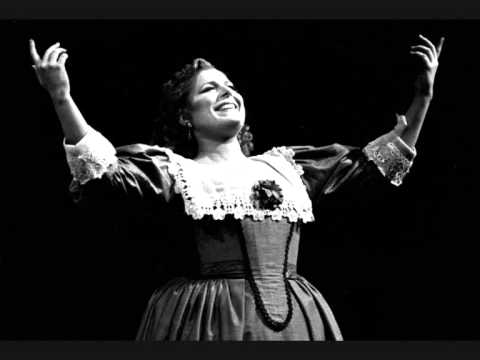
Soprano Gianna Rolandi dies at 68
EXCERPT:She quickly won attention for the agility and radiance of her singing —
and for, when it was called for, a beguiling sassiness. Beverly Sills, City
Opera’s greatest star, became a crucial mentor to Ms. Rolandi in the 1980s, when
Ms. Sills retired from singing to become the company’s general director.
https://www.nytimes.com/2021/06/23/arts/music/gianna-rolandi-dead.html?unlocked_article_code=AAAAAAAAAAAAAAAACEIPuonUktbfqohkTlUZACbcR8Q86RibnvnEh7M9j3n4JW2PTjJLyegURoSN8kuLZbZmY5F7-QWnc-J7Ee1lQu1unKgYNlZxSgKsr9zfxsQIeX5q88e6Az04ms_GAOp9-GGxMCziJrl2zufj4EyNOzb6SeeIhy1aUQVmpZNgfFqp0GVZhfuWV74ohaQtmKspFZt4Rj8fZSaVvPaOCxR2OtmObRq0-RBhEqgCGmmVxYjAnupGJAZCClvGTGd953I_6b5fMdAWOKX_LH0waVPMYhkaD_j3sxw8x2nvHK8&smid=em-share
4.
"Il Pagliacci" is a kind of operatic caricature, or has become such, sad to say.
The image of the weeping clown is forever cited, satirized in "popular culture."
This is the ironic distinction accorded the greatest works of art, of course,
that they invite the most parody. The ultimate backhanded compliment, I suppose.
The opera is a verismo (realism) potboiler, a succinct, colorful tale of
jealousy and murder and self-destruction, with gripping, inspired music by
Leoncavallo---the best he ever wrote. The aria, "Vesti la Giubba," transcends
the pop culture mockery to remain profound and moving, one of the great,
heart-rending moments in opera. This is the first of a two-part "Pagliacci"
excerpt. Here is the superb tenor, Giuseppe di Stefano, when he was at his best,
and voice not ruined by cigarettes, booze, dalliance with the "opposite camp."
In this scene, Canio, an entertainer with a traveling troupe, has discovered
that his wife and co-star, Netta, is having an affair---yet he must go on stage
with her, as a clown. "Put on the costume," he sings. With English subtitles.
https://www.youtube.com/watch?v=3cYc5QCoYg4
Synopsis:
Canio chases Silvio, but does not catch him and does not see his face. He
demands that Nedda tell him the name of her lover, but she refuses. He threatens
her with a knife, but Beppe disarms him. Beppe insists that they prepare for the
performance. Tonio tells Canio that her lover will give himself away at the
play. A heartbroken Canio is left alone to put on his costume and prepare to
laugh ("Vesti la giubba" – "Put on the costume").
5.
The final few minutes of Leoncavallo's "Pagliacci" are, when well performed,
gripping and devastating. A great test of drama, opera, music, even visual art,
is when you "know the ending," but are still hit by it as if fresh.
Perhaps---perhaps---a reason for the impact of this opera is that it was not
based on a book, legend, tale. Rather, it came straight from the composer's
childhood, amazingly enough, from a murder in 1865, the victim of which was a
Leoncavallo family servant, Gaetano Scavello. The murderer was one Gaetano
D'Alessandro, whose brother, Luigi, was his accomplice. The incident resulted
from a series of perceived romantic entanglements involving Scavello, Luigi
D'Alessandro, and a village girl with whom both men were infatuated. Let's tryst
again, like we did last summer! Leoncavallo's father, a judge, was the presiding
magistrate over the criminal investigation. Perhaps not in the entire verismo
(realism) repertory is an opera more appropriately categorized, as this one is
taken from. . .reality. We pick up the story of the traveling troupe of
entertainers destroyed by jealousy and murder, where Canio, dressed as a clown,
has "gone on with the show"---despite the knowledge that his wife, Nedda, is
carrying on behind his back with their colleague, Silvio. Canio is slipped a
knife by the scheming Tonio---who ratted out the lovers---and both are murdered
in full view of the gathered audience. Note: the final line, "The comedy is
over," is, in this excerpt, spoken by Tonio---as written. Over the decades, for
questionable dramatic purposes, it is often given to Canio instead. Here is
Placido Domingo in the title role. With English subtitles.
https://www.youtube.com/watch?v=nn9K_sJakiw
Here is an even more powerful concluding scene, with Luciano Pavarotti in the
title role, but minus English subtitles. NOTE: the final line here is spoken by
Canio.
https://www.youtube.com/watch?v=i__XsGDYpb0
6.
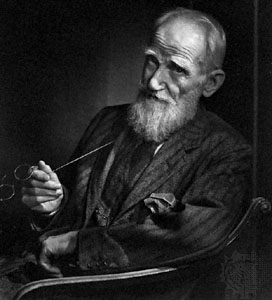
Shaw 'nuff
"Opera is when a tenor and soprano want to make love, but are prevented from
doing so by a baritone."---George Bernard Shaw.
Perhaps in no other opera is this more the case than Verdi's "La Traviata,"
right? Germond, father to Alfredo, wants his son to have nothing whatsoever to
do with Violetta, the notorious "lady of the camellias"---essentially the most
courted courtesan in Paree. Never mind that no one knows that Violetta is
fatally ill. Seeing as SOL featured a (gasp) protracted scene from "Pagiliacci,"
here is one from "Traviata." Germond (baritone), pleads with Violetta to steer
clear of his boy, and shows considerable tenderness in the process. This is the
gorgeous melodiousness of the Act 2 duet between Violetta and Germond. NOTE:
This is an entirely asinine production, yet another case of pseudo-intellectual
directorial meddling, but features English subtitles and two superb
singers, Thomas Hampson and Anna Netrebko.
https://www.youtube.com/watch?v=yg9GOdbVdWc
Synopsis:
Alfredo's father, Giorgio Germont, is announced and demands that she break off
her relationship with his son for the sake of his family, since he reveals that
Violetta's relationship with Alfredo has threatened his daughter's engagement
(Giorgio: Pura siccome un angelo, Iddio mi diè una figlia – "Pure as an angel,
God gave me a daughter") because of Violetta's reputation. Meanwhile, he
reluctantly becomes impressed by Violetta's nobility, something which he did not
expect from a courtesan. She responds that she cannot end the relationship
because she loves him so much, but Giorgio pleads with her for the sake of his
family. With growing remorse, she finally agrees (Violetta, Giorgio: Dite alla
giovine, sì bella e pura, – "Tell the young girl, so beautiful and pure,") and
says goodbye to Giorgio. In a gesture of gratitude for her kindness and
sacrifice, Giorgio kisses her forehead before leaving her weeping alone.
7.
In this instance, contrary to Bernard Shaw's glib assertion, the tenor is
prevented from consummating his love with a soprano not by a baritone---but by a
bass. (Hair split.) This is the massive, five-act Shakespearian-level tragedy,
"Don Carlos," by Verdi. I ain't gonna get into the can of worms that is the
plot, but suffice to say that Don Carlo (a tenor) and Rodrique (baritone) seem
to be in love with the same woman, yet deem their friendship more important. If
you imagine this turns out well, you might not want to bet heavily on it. Yes,
the bass, King Philip (Carlos' father) more or less throws a monkey-wrench into
these works. Got it? So now you are ready for the noble duet between Don Carlo
and Rodrique, "Dio, che nell'alma infondere," with Thomas Hampson and Jonas
Kaufmann. (Didn't know operas were made of worms and wrenches, did you. . .)
https://www.youtube.com/watch?v=yNPxYQbBuDI
Translation:
https://opera-cat.livejournal.com/12528.html
8.
Yes, it's a cheap segue, but SOL is not above such. There is another opera
(probably many) in which two friends in love with the same woman forswear that
love in order to remain "friends forever." And yes, this is another exception to
Bernard Shaw's rule. Hell, the baritone turns out to be heroic! In Bizet's "The
Pearl Fishers," Zurga (baritone) and Nadir (tenor)---once great
friends---encounter one another after many years. Realizing they are both
smitten with love for the Brahman priestess, Leila, they pick up guitars and
play that signature opening riff---oh, wait, got my genres confused. No, they
sing the incredibly beautiful paean to the nobility of friendship, "Au Fond du
Temple Saint." Yes, Zurga and Nadir soon fall out, but in the end, Zurga's
conscience and better nature prevail, and he actually ensures the escape of the
lovers, as he awaits his own certain death. Here are Thomas Hampson, and the
late, great Jerry Hadley. No, it is not considered the epitome of
interpretations, but it really gathers steam and clout as it goes along. Rest in
peace, Jerry Hadley.
https://www.youtube.com/watch?v=6eTCNeIyx9U
Translation:
https://en.wikipedia.org/wiki/Au_fond_du_temple_saint
About the opera:
https://en.wikipedia.org/wiki/Les_p%C3%AAcheurs_de_perles
Psssst.
https://www.youtube.com/watch?v=TngViNw2pOo
About Jerry Hadley:
https://en.wikipedia.org/wiki/Jerry_Hadley
9.
Have not grabbed enough sopranos in today's Grab-bag edition of SOL. That
doesn't sound quite right, but. . .anyhow, here is the soprano aria from Bizet's
"Pearl Fishers," which correctly plays second fiddle to the duet, "Au Fond du
Temple Saint" (selection #8) and also "Je crois entendre encore," the haunting
tenor aria. But it is lovely in its own right, right? You decide. Here is "Comme
autrefois," with English subtitles, for your extreme convenience. Soprano
Heather Buck.
https://www.youtube.com/watch?v=ALWtH1nuhl0
And if you prefer a better soprano, here is about as better as better gets:
https://www.youtube.com/watch?v=ALWtH1nuhl0
Synopsis:
Act 2
In the temple with Nourabad, Leila expresses fear at being left alone, but
Nourabad exhorts her to be brave and to fulfil her vows to Brahma on pain of her
own death. She tells him of the courage she once displayed when, as a child, she
had hidden a fugitive from his enemies and refused to give him up even when
threatened with death ("J'étais encore enfant"). The fugitive had rewarded her
with a necklace that he asked her always to wear. She had kept this promise, as
she would her vows. On the priest's departure, Leila quietly muses on the former
times when she and Nadir would meet together secretly ("Comme autrefois dans la
nuit sombre").
Translation:
https://www.opera-arias.com/bizet/les-pecheurs-de-perles/comme-autrefois-dans-la-nuit-sombre/
FINAL BOW:
The stirring, spectacular "Brahma Chorus" from the end of act two of Bizet's
"Pearl Fishers." This is essentially what transpires following the soprano aria
(see selection 9), "Comme autrefois." If you notice that the chorus uses the
same melody as "Au Fond du temple saint"---the duet in which Zurga and Nadir
pledged friendship---you have a good ear.
https://www.youtube.com/watch?v=Vl0c43pZ-OY
Synopsis:
Nadir then enters; in her fear of Nourabad's threats Leila begs him to leave,
but he remains and the two declare their love in a passionate duet ("Léïla!
Léïla!...Dieu puissant, le voilà!"). He goes, promising to return next night,
but as he leaves he is captured by the fishermen and brought back to the temple.
Zurga, as the fishermen's leader, at first resists the fishermen's calls for
Nadir's execution and advocates mercy. However, after Nourabad removes Leila's
veil, Zurga recognises her as his former love; consumed by jealousy and rage, he
orders that both Nadir and Leila be put to death. A violent storm erupts, as the
fishermen unite in singing a hymn to Brahma ("Brahma divin Brahma!").
Translation:
Brahma, holy Brahma, may your hand protect us,
come and dispel the snares of the nightly spirits!
O holy Brahma we are all prostrate in front of you!
O Brahma, etc.
About Brahma:
https://en.wikipedia.org/wiki/Brahma
For ten points, name a pop song that name-checks Brahma. Ten points. Really.
Answer:
https://www.youtube.com/watch?v=mmEfkosNNxI
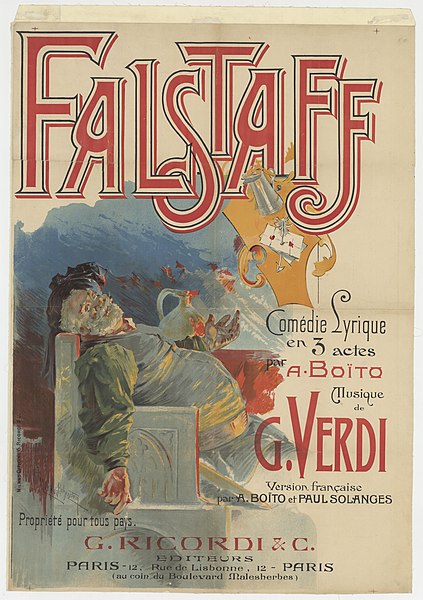
Back to Opera Links
Back to Home Page
|



